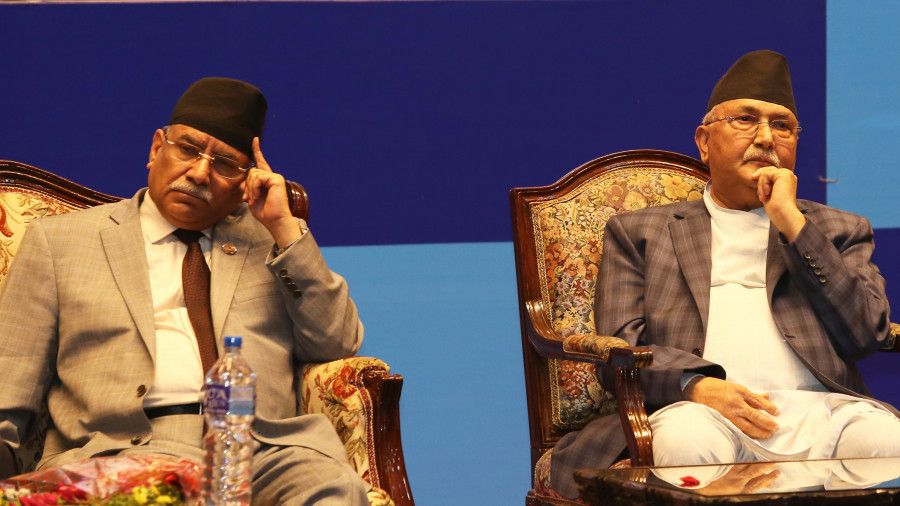Editorial
Misplaced priorities
The relation between what leaders should do today and what they are doing is inversely proportional.
As Nepal is reporting new Covid-19 cases at an alarming rate, projections for the coming months are scary. According to an internal projection of the Ministry of Health, an additional 320,000 people will be infected with the coronavirus the number of infections remains at 2,665 per day. The ministry's figures for the past two weeks show an average of 3,195 new infections daily. It has now become apparent that the pandemic has the potential to unleash a new humanitarian crisis. The state’s response, however, has been abysmal at best. The government has by now given up on its fight against the pandemic. One reason why the country has come to a pretty pass is the governing Nepal Communist Party’s internal problems, which have badly affected the governance.
In a democracy, people vote a certain party to power with hopes that the government led by it will serve them–ensure smooth service delivery, uphold their fundamental rights and prioritise the problems the people are facing and address them by effectively employing state mechanisms. But the exact opposite is happening in Nepal. The Nepal Communist Party (NCP), as a unified party after the merger of the CPN-UML and the Maoist Centre, had the strongest mandate the Nepali people had given to any other party in the country’s recent history. But today, the party is so embroiled in its internal conflict that it has completely failed in governance.
The recent Karnali fiasco elucidates how politicians have been undermining democracy in their lust for their power. After 18 assembly members in Karnali Province moved a no-confidence motion against Chief Minister Mahendra Bahadur Shahi, the ruling NCP’s central leadership, including chair and Prime Minister KP Sharma Oli, have been engrossed in the game of brinkmanship, not giving two hoots about the pandemic that is killing people every day. At a time when PM Oli should be holding meetings with officials and experts to discuss ways to contain the pandemic and save the lives of the people, he is busy consulting leaders to exercise one-upmanship.
The pandemic has hit the economy hard, led to the closing of businesses and rendered hundreds of thousands of people jobless. These should have been the priority of the NCP and its leaders. After squabbling for months, party co-chairs Oli and Pushpa Kamal Dahal were said to have reached a truce last month. It, however, became clear pretty soon that the ceasefire entailed a larger power-sharing deal–shares in the Cabinet, ambassadorial positions and other constitutional bodies. All of the ruling party’s committee meetings have so far made just perfunctory discussions on the pandemic, with a majority of time spent on haggling over power.
In Nepal today, people’s priority has been to protect themselves from the pandemic even as leaders busy themselves haggling over power and position. NCP leadership must realise that they have to be out on the hustings in about two years. The Oli administration has squandered the opportunity given by the people to ensure good governance and work in the larger interest of the people. People may forgive all of NCP's bungling if the government works earnestly to fight the pandemic and listens to the people. They may remember that New Zealanders recently rewarded their leader Jacinda Ardern by voting her to power for her decisive response to Covid-19. Lest the NCP leaders forget, people often make informed decisions in a democracy. If the people can vote a party into power, they can also vote them out of power.




 18.12°C Kathmandu
18.12°C Kathmandu














